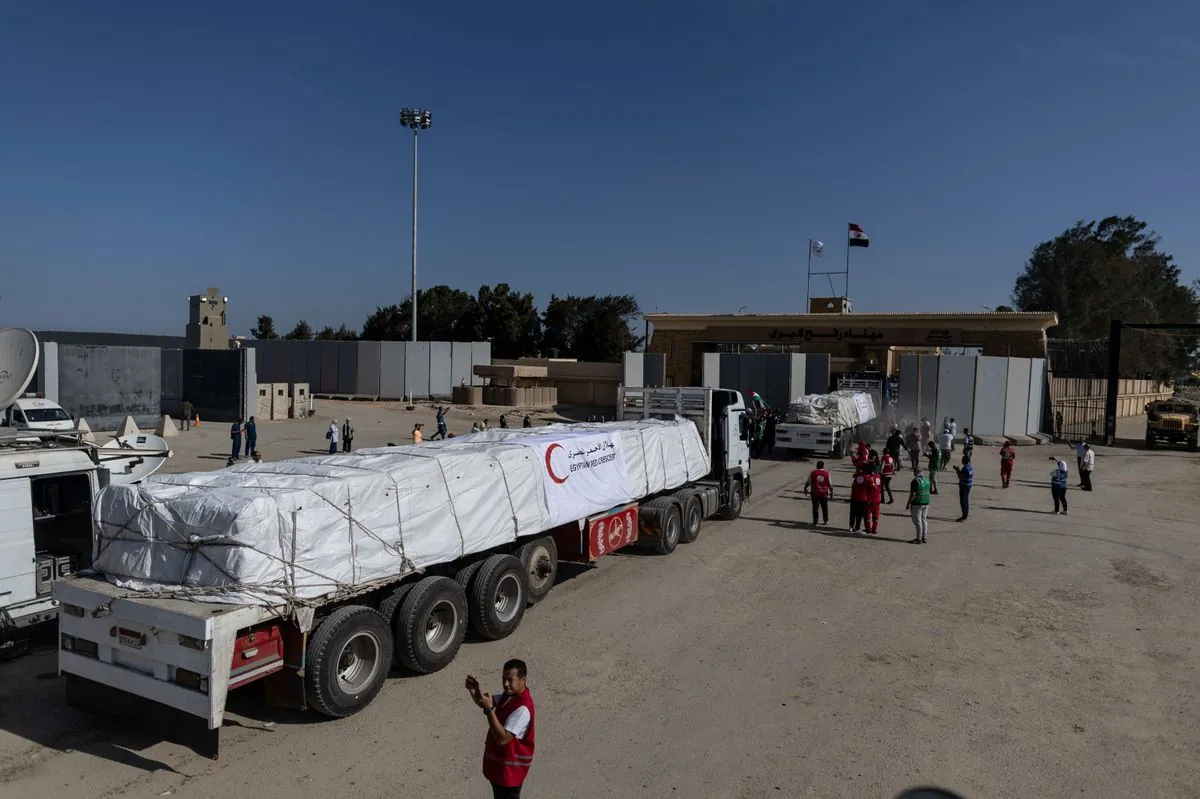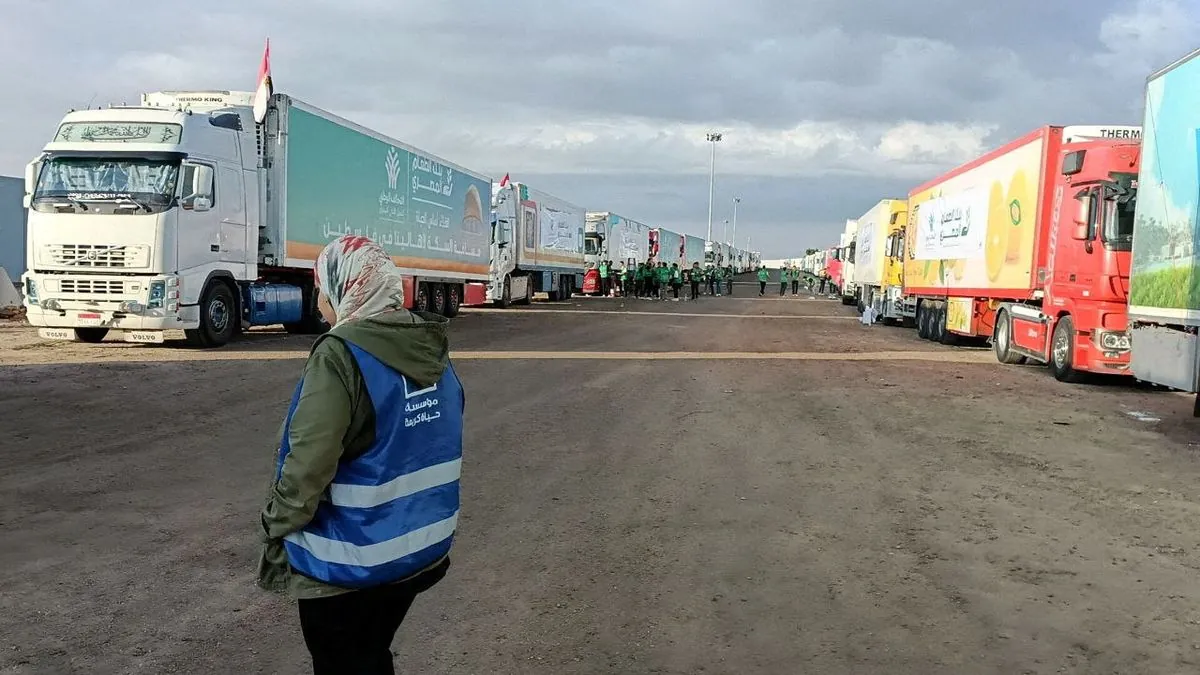New Customs Rule and Restrictions Hinder Gaza Aid Deliveries
Food supplies to Gaza plummet as Israel implements new customs regulations and limits commercial shipments. UN aid convoys from Jordan halted, raising concerns about worsening food insecurity for 2.3 million Gazans.

Recent changes in customs regulations and commercial shipment restrictions have led to a significant decrease in food supplies reaching Gaza, exacerbating the already dire humanitarian situation in the region. The Gaza Strip, one of the most densely populated areas globally, has been grappling with severe food insecurity, which has now reached critical levels.
In mid-August 2024, Israeli authorities introduced a new customs rule affecting United Nations aid convoys traveling from Jordan to Gaza via Israel. This regulation requires individuals from relief organizations to complete a form providing passport details and accept liability for any false information on shipments. Aid agencies have expressed concerns about potential legal repercussions if aid falls into the hands of Hamas or other groups considered enemies of Israel.
As a result, UN-chartered convoys have been unable to use the Jordan route for two weeks, significantly impacting the flow of supplies. This route, opened in December 2023, had become a crucial channel for aid delivery to Gaza. The blockade of the Gaza Strip, which began in 2007 after Hamas took control, has severely limited the territory's access to essential resources.

Simultaneously, Israeli authorities have restricted commercial food shipments due to concerns that Hamas might be benefiting from this trade. This dual constraint has led to a sharp decline in food and aid deliveries, with September 2024 recording the lowest levels in seven months. The United Nations Relief and Works Agency (UNRWA), which provides assistance to Palestinian refugees in Gaza, faces increasing challenges in meeting the population's needs.
The situation has reignited concerns among aid workers about the pervasive food insecurity in Gaza. Dr. Nour al-Amassi, a physician working in southern Gaza, reported treating an average of 15 malnourished children daily out of 50 patients seen for various issues. This alarming statistic highlights the severe impact of the current restrictions on the health and well-being of Gaza's population, particularly its youth.
Gaza's economy, heavily dependent on foreign aid and remittances, has been further strained by these new restrictions. The territory already faces one of the highest unemployment rates globally, and its main economic activities, including small-scale industries and agriculture, have been severely impacted by the ongoing blockade and conflicts.
"We facilitate food deliveries to Gaza despite challenging conditions."
However, the data shows a significant decrease in the number of trucks carrying food and other goods to Gaza. In September 2024, the daily average fell to around 130 trucks, far below the 600 trucks per day that the U.S. Agency for International Development deems necessary to address the threat of famine in wartime conditions.
The Gaza Strip's water crisis, with 97% of water unfit for human consumption, compounds the food security issues. Limited access to clean water not only affects public health but also hinders agricultural activities, further straining local food production.
As the situation continues to deteriorate, international attention is focused on finding solutions to ensure adequate food supplies reach the 2.3 million Gazans trapped in the occupied Palestinian territory. The complex geopolitical landscape and security concerns continue to pose significant challenges to humanitarian efforts in the region.


































